Living solo offers unparalleled freedom—midnight karaoke sessions, spontaneous dance parties, and the joy of a space that’s yours. But amidst the fun, it’s easy to overlook simple habits that could compromise your safety. From forgetting to lock doors to neglecting friendly neighborly connections, minor oversights lead to major risks. Explore these common mistakes and ensure your solo adventure remains as safe as it’s exciting.
Forgetting to Lock Doors and Windows—An Invitation You Didn’t Send
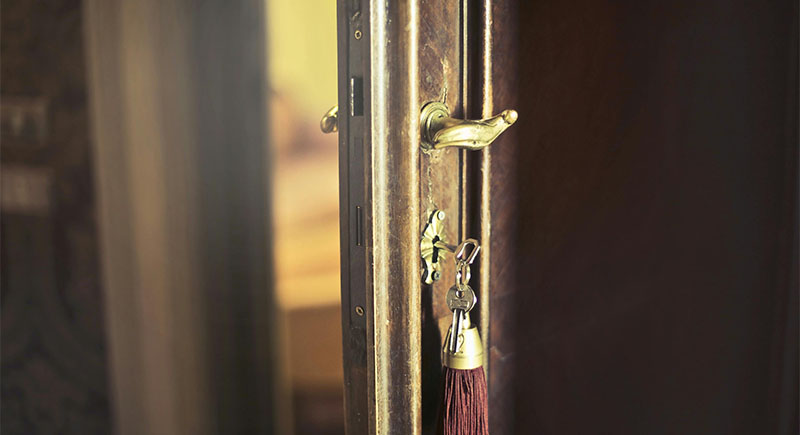
Unlocked doors and windows make things easy for intruders. Studies show many break-ins happen through an unsecured entry point. Even upper-floor windows aren’t off-limits. Before heading to bed or leaving, double-check everything. Reinforce weak locks, install window stops, and make it second nature to secure every entrance. It’s a simple habit that could prevent a major problem.
Overlooking Smoke and Carbon Monoxide Detectors—Silent Threats Lurking at Home
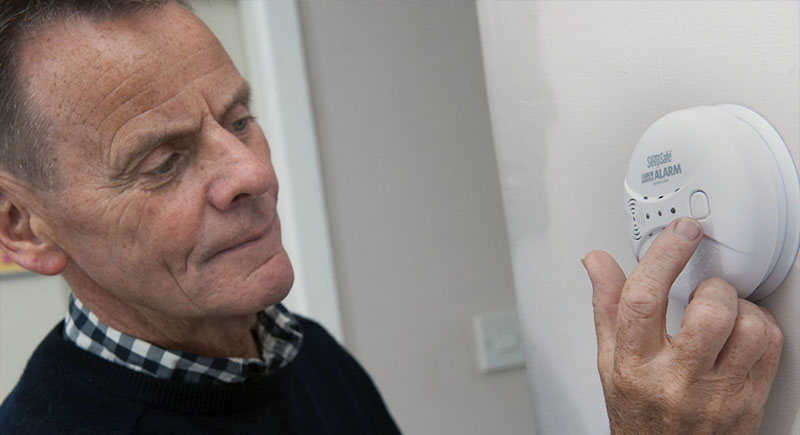
Fires and carbon monoxide leaks turn deadly without warning. Smoke alarms cut fire-related deaths in half, while carbon monoxide detectors protect against an invisible killer. Testing devices monthly and replacing batteries twice a year makes all the difference. Don’t assume everything works fine. A quick check could be the reason you wake up tomorrow.
Posting Too Much on Social Media—Broadcasting Your Whereabouts to Strangers

Sharing details about your routine, vacations, or solo living status makes it easier for criminals to track movements. Many burglaries happen when people publicly post that they’re away. Switch accounts to private, delay vacation photos until you’re back, and keep personal details vague. Social media should entertain—not be a roadmap for intruders.
Not Having a Check-In Buddy—No One Knows If Something’s Wrong

Living alone means no one notices if you disappear for days. A check-in buddy ensures someone’s looking out for you. Set up a system with a friend, family member, or coworker to exchange daily or weekly messages. They know to check in if your silence lasts too long. Independence is great, but backup is even better.
Ignoring the Need for Curtains or Blinds—Putting Life on Display
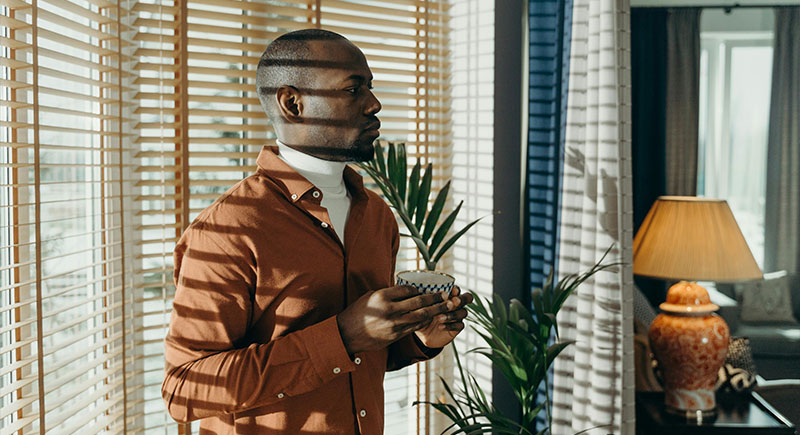
Bare windows give strangers an unfiltered view of everything inside—your belongings, your routine, and whether you’re home alone. Criminals scout easy targets, and an open view makes their job effortless. Block prying eyes with curtains, blinds, or privacy film. Keep valuables out of sight and ensure the only thing visible is a well-protected home.
Skipping Out on Renter’s Insurance—A Costly Gamble
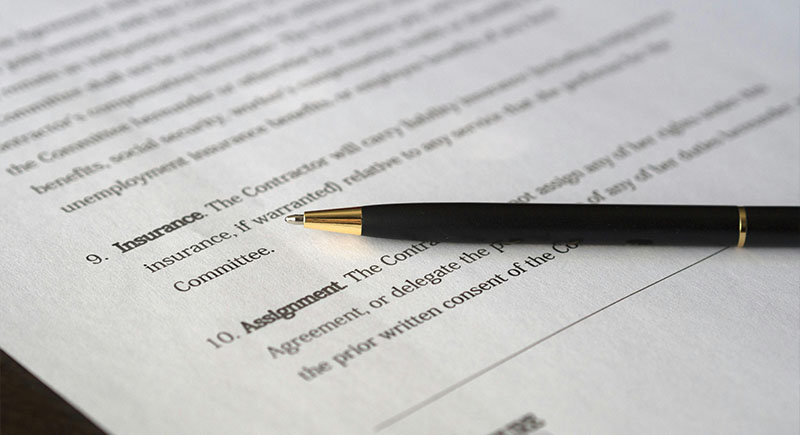
Fires, theft, and water damage happen more often than people expect. Without renter’s insurance, replacing everything comes from your pocket. Policies are affordable and cover more than personal belongings, including liability for accidents. A few bucks a month could save you thousands. Double-check coverage details and protect what you’ve worked hard to own.
Neglecting to Secure Wi-Fi Networks—Leaving the Digital Door Wide Open
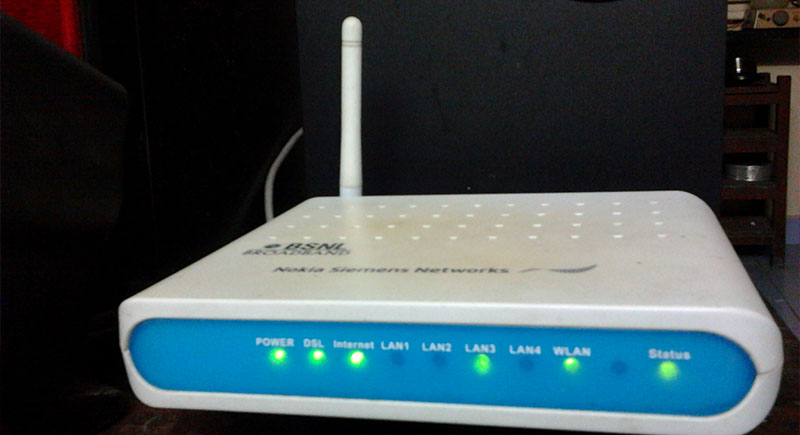
An unsecured Wi-Fi network is a tech problem and a security risk. Hackers can steal your exclusive data, access smart home devices, and spy on cameras. Strengthen defenses with a strong password, WPA3 encryption, and regular updates. Cybercriminals move on if they can’t break in. Securing your internet means protecting everything connected to it.
Underestimating the Value of a Security System—A Deterrent That Works
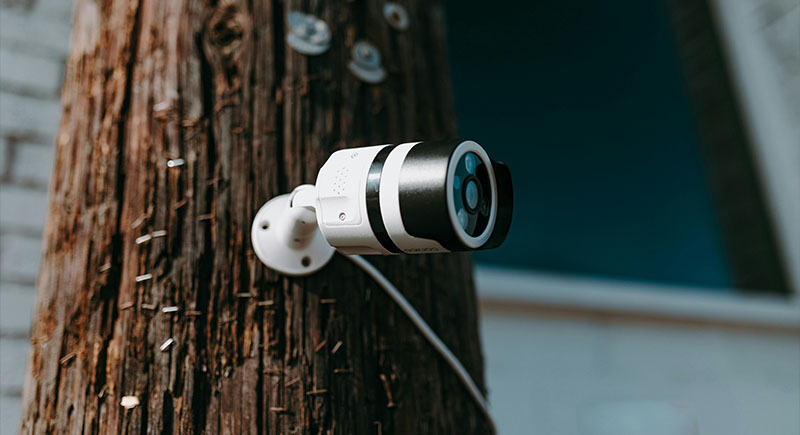
Homes without security systems are more likely to be targeted. Basic alarms, cameras, or smart locks significantly reduce break-ins. Criminals prefer easy opportunities, and visible deterrents push them elsewhere. It doesn’t matter whether a monitored system or a budget-friendly DIY setup, taking any step toward better security is smarter than hoping nothing happens.
Keeping a Spare Key Outside—Helping Intruders Let Themselves In
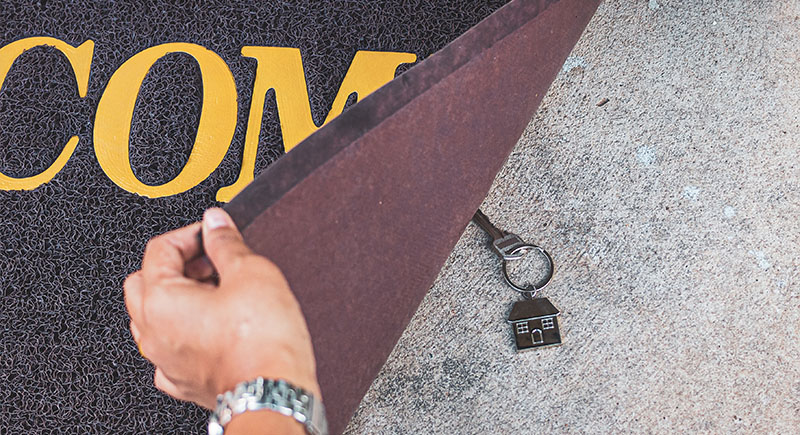
Fake rocks, flower pots, under the mat, and doorframes are the first places burglars check. Leaving a spare key outside makes breaking in easy. Use a lockbox with a code, give an extra key to a trusted neighbor, or invest in a smart lock. You should be the person finding that key and not a stranger.
Overlooking Emergency Exits—Getting Trapped in a Crisis
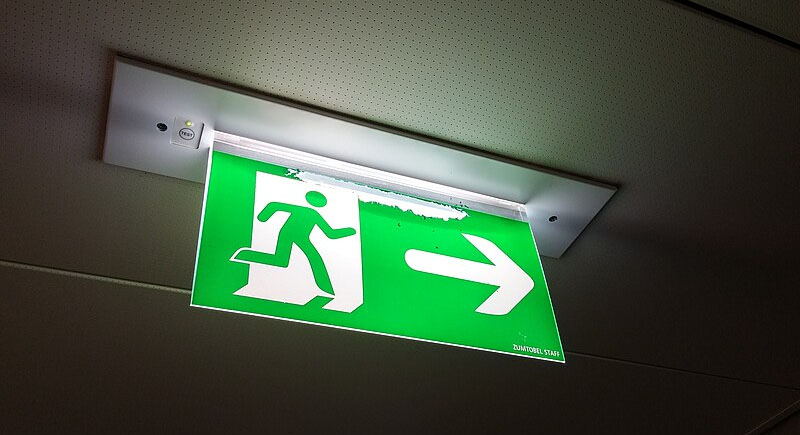
Knowing the way out could mean surviving a fire or break-in. Many don’t think about exits until danger strikes. Walk through escape routes to keep pathways clear and ensure windows aren’t stuck. A quick plan makes all the difference in high-stress moments. Knowing where to go is an option if leaving quickly isn’t.
Letting Mail and Packages Pile Up—Announcing an Empty Home
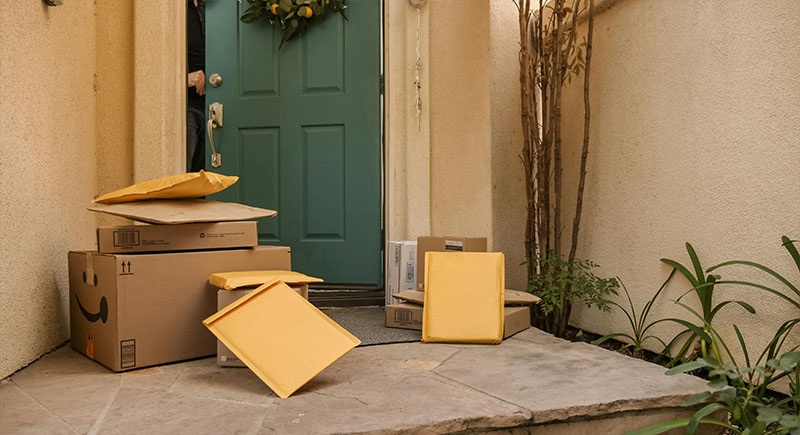
Stacked-up mail and unattended packages scream, “Nobody’s here!” Burglars look for these signs when scouting homes. Pause deliveries or ask a neighbor to collect your mail if traveling. A package theft is annoying, but a break-in is worse. While an overflowing mailbox might be a small detail, it sends a loud message.
Failing to Light Up Your Living Space—Keeping Shadows Too Welcoming
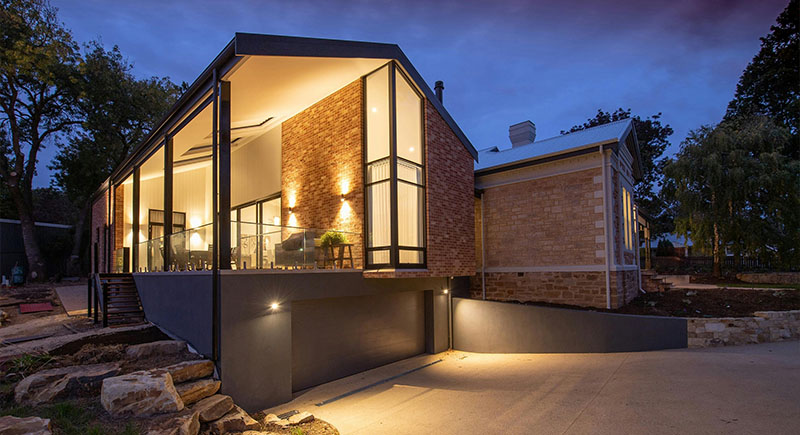
Dark doorways and unlit yards make it trouble-free for criminals to lurk unnoticed. Well-placed lighting remarkably reduces break-in risks. Motion sensors, smart bulbs on timers, or simple porch lights keep suspicious activity away. Burglars avoid homes that make them visible. A little brightness goes a long way in keeping trouble at bay.
Not Changing Locks After Moving In—Trusting Strangers with Your Safety
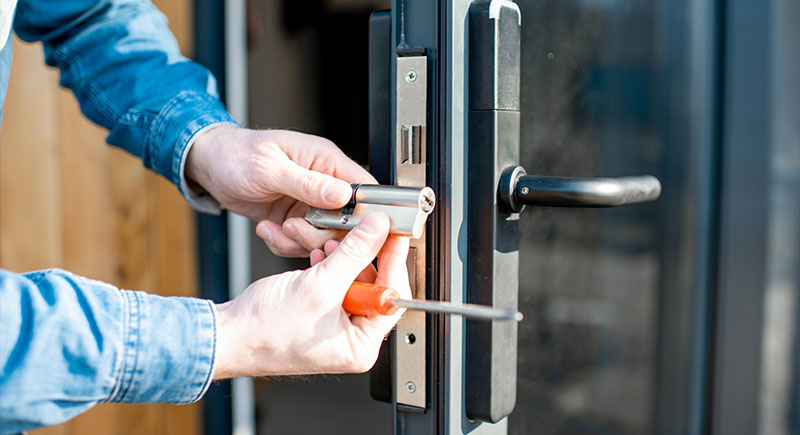
Previous tenants, maintenance workers, or realtors could still have copies of your keys. Anyone with an old key has access without changing locks. Replacing them is cheap and takes minutes, but ignoring it could lead to an unwelcome surprise. Assume someone else can open the locks if you didn’t install them yourself.
Being Too Shy to Meet the Neighbors—Losing Out on Extra Security
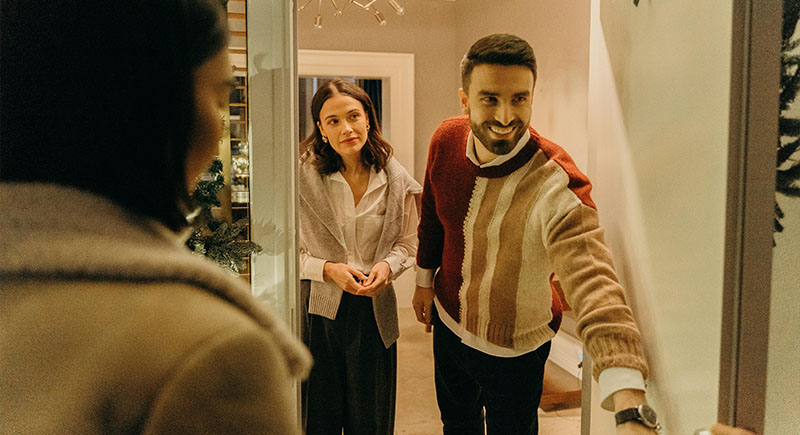
A friendly face nearby is potentially a game-changer. Neighbors notice when something looks off, whether it’s a stranger snooping around or a package gone missing. Saying hello doesn’t mean becoming best friends, but some familiarity builds a stronger and safer community. Having someone who cares nearby is invaluable if something ever happens.
Ignoring Your Gut Feeling—Overthinking Instead of Acting
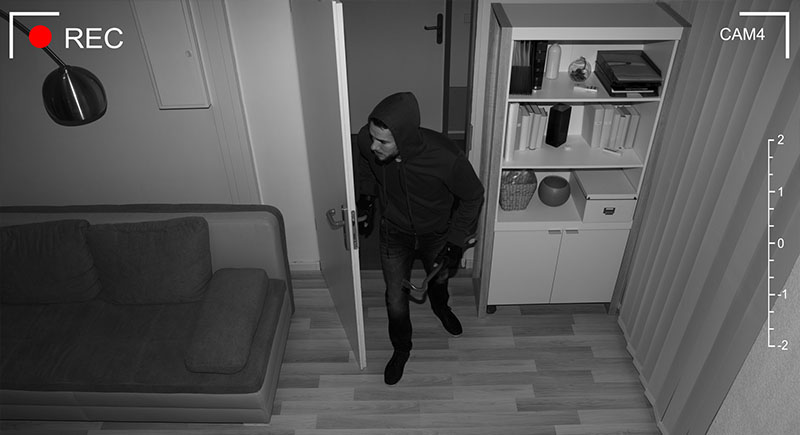
That uneasy feeling isn’t paranoia—it’s survival instinct. Many people who’ve faced danger admit they sensed something was wrong beforehand. Ignoring intuition could mean missing a crucial warning sign. Take it seriously if something feels off. Cross the street, lock the door, and make the call. Your gut doesn’t need proof to keep you safe.